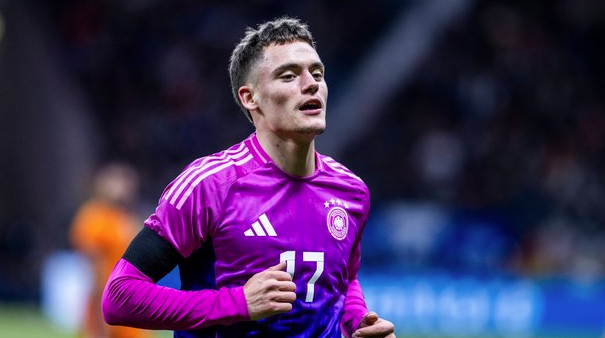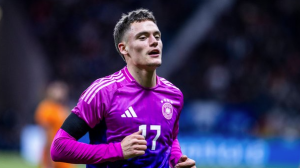
As European football’s transfer saga intensifies, https://1win-uganda.com/ analysts have identified Florian Wirtz as the most significant talent currently available in the market, with the young German’s decision potentially reshaping the continent’s footballing landscape for years to come.
The Unique Talent: Wirtz’s Exceptional Mental Strength
What sets Wirtz apart from his contemporaries isn’t just his technical ability, but a rare psychological advantage reminiscent of Andrea Pirlo. Like the Italian maestro, Wirtz benefits from a privileged background that removes financial pressure, allowing him to play with remarkable composure. His sister Juliana, herself a professional footballer, has revealed Florian’s superpower: an almost complete absence of anxiety during matches.
This mental fortitude, combined with his upbringing in a football-oriented family – his father Hans-Joachim serves on the board of regional club Grün-Weiß Brauweiler – has created a player who approaches the game with both passion and remarkable clarity. Unlike many young talents who crumble under pressure, Wirtz thrives in high-stakes situations, treating crucial matches with the same composure as training sessions.
The Tactical Dilemma: Finding His True Position
At 21, Wirtz faces a crucial identity crisis similar to what Kevin De Bruyne experienced early in his career. Like the Belgian, who transformed from a conventional winger into one of the world’s premier central midfielders, Wirtz’s versatility presents both an opportunity and a challenge. His impressive record of 100 goal contributions in 169 matches for Bayer Leverkusen demonstrates his attacking prowess, yet some see him as a potential deep-lying playmaker in the mold of Toni Kroos.
This positional flexibility makes him attractive to Europe’s elite clubs but also raises questions about his optimal role. Under Xabi Alonso at Leverkusen, Wirtz has excelled as an attacking midfielder, while Julian Nagelsmann envisions a different role for him in the German national team. His ability to influence games from various positions recalls the career trajectories of both Kroos and Bastian Schweinsteiger, who successfully adapted their games as they matured.
The Three-Way Battle: Analyzing His Options
Three major clubs have emerged as primary contenders for Wirtz’s signature, each offering a distinct career path. Real Madrid sees him as Kroos’s natural successor, potentially placing him alongside Jude Bellingham in a reconstructed midfield. However, this move could risk limiting his attacking instincts, especially given the presence of Vinícius Júnior and Kylian Mbappé.
Bayern Munich represents the safe choice – staying in the Bundesliga and following a well-worn path for German talents. Yet the club’s current financial constraints and existing young talent might limit his opportunities to shine. Moreover, Bayern’s recent tactical approach might not fully utilize his creative abilities.
Manchester City offers perhaps the most intriguing possibility. Under Pep Guardiola’s guidance, Wirtz could develop in multiple roles, potentially filling the void left by Julian Alvarez while learning from Kevin De Bruyne. However, the club’s intense competition for places and the uncertainty surrounding Guardiola’s long-term future present significant risks.
Future Prospects and Career Development
Wirtz’s development thus far suggests he could become one of football’s defining players of the next decade. His recovery from a serious cruciate ligament injury has shown remarkable resilience, and his role in Leverkusen’s historic title challenge demonstrates his ability to perform under pressure.
The critical decision facing Wirtz extends beyond choosing a club – it’s about selecting an environment that will nurture his unique combination of technical brilliance and tactical intelligence. His market value of €120-130 million reflects not just his current abilities but his potential to develop into a generational talent.
The successful integration of players like Bellingham at Real Madrid and Phil Foden at Manchester City provides different models for young talent development at elite clubs. Wirtz must consider not just immediate playing time but long-term development opportunities.
For any club securing his signature, the challenge will be maintaining the environment that has allowed Wirtz to flourish at Leverkusen – one where his natural creativity and intelligence can shine while continuing his tactical development. His ability to contribute both goals and assists while maintaining exceptional passing accuracy makes him a unique prospect in modern football.
The coming months will be crucial in determining not just Wirtz’s future but potentially the balance of power in European football. His decision could influence tactical trends and transfer strategies across the continent, making this one of the most significant transfers of the modern era.








